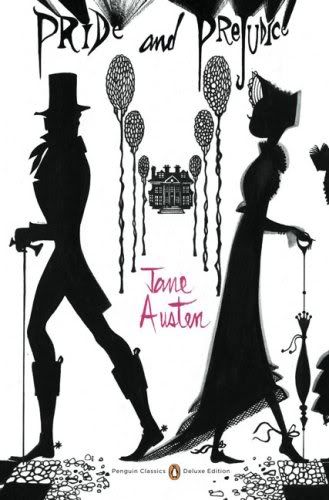 Mee invited all Pride and Prejudice first-timers to a readalong in February. I'd like to start this post by apologising for not finishing the book in the second month of the year itself, but, I got sidetracked with a couple of other things, and well, you know how it goes...
Pride and Prejudice is my very first Austen (yes, I'm a book blogger who has never read an Austen. Shame on me!), and there are so many things I want to say about the experience. I'm not going to write a proper "review" with a story recap etc. as, well, most people have a general idea as to what the story's about, and in my opinion, knowing more can ruin the story for them.
Mee invited all Pride and Prejudice first-timers to a readalong in February. I'd like to start this post by apologising for not finishing the book in the second month of the year itself, but, I got sidetracked with a couple of other things, and well, you know how it goes...
Pride and Prejudice is my very first Austen (yes, I'm a book blogger who has never read an Austen. Shame on me!), and there are so many things I want to say about the experience. I'm not going to write a proper "review" with a story recap etc. as, well, most people have a general idea as to what the story's about, and in my opinion, knowing more can ruin the story for them.
That was my major gripe with Pride and Prejudice. I really wish I'd read it as a teenager, as I wasn't aware of the storyline back then. Things have changed since, and much to my displeasure, I discovered that a lot of the feel-goodness of the book was lost as I already knew how things would come together in the end. Further, I also knew how a couple of characters would turn out, which was annoying.
That said, I did still enjoy the book, if for nothing else, the language - oh, how I loved the language! Why don't we speak like that now-a-days? Well-articulated, romantic sentences in proper English (it was the nineteenth century), with appropriate exaggerations? It's a fantastic world to get lost into, and the emphasis is so much more on the dialogue than the ambience. Through the dialogue, you acquaint yourself with the characters, and it's almost as though you're right there with them through everything: the balls and the walks, the ecstasy and the misery, the anger and the lament. You even get to read the letters between the characters, which tells you all the more about them, and by the end of the book, everyone has a favourite: Elizabeth Bennet or Mr. Darcy. Unfortunately, none of the other characters jump off the pages as much as the aforementioned.
Yet, I cannot fault Austen for characterisation. As readers, we're introduced to a myriad of characters who stem from being naively good hearted to downright self-involved and manipulative; from being "airheads" (sorry, but that is the apt twenty-first century term) to being gallant; from being weak-minded or avaricious to having severe delusions of grandeur thanks to association. The people would fit in today's society easily - we see them every day! Some we would judge, and some we'd want for our best friend. Some we'd loathe, and some we'd do our best to bring down to earth. Some we'd instantly have an opinion on, only to be proven wrong. That aspect of timelessness amazes me - are society's virtues and vices inherently still the same across two centuries?
And then, we come to the setting: Austen brilliantly brings out life in the nineteenth century, almost satirically. Imagine a world where girls aren't allowed inheritance, despite the property being owned by their father? How about a world where an embarrassing mother is trying to find an eligible bachelor for five teenage daughters (who really should be in school)? Or, a world where people who earn five thousand pounds annually are considered rich? Where girls are looking out for eligible "Officers" as potential husbands - everyone really has only one thing on their minds?! Some of the essential laws of human survival exist: power rules, money talks, estates wow and some people are better as indifferent acquaintances instead of friends!
I did like the dynamics between the characters as well, specially the Bennet family (including the aunts and uncles). Also, must make a special mention of the relationships between Mr. Darcy and his sister, and Mr. Darcy and his aunt Catherine, for they made the book a lot more rich!
I really did enjoy the book, although, maybe not the story in itself, if that makes sense? Again, I attribute that to me already knowing the way the plot would turn, and hence, missing out on the feel-good factor. Also, some of the romanticism and mushiness was a little much for me, but, I guess that was part and parcel of the nineteenth century, and maybe, in another lifetime, I was Elizabeth Bennet. Well, a girl can dream. :)